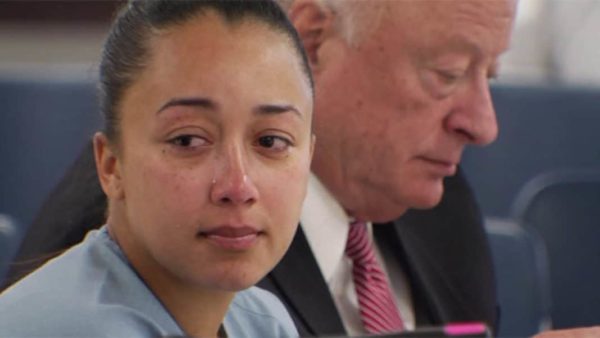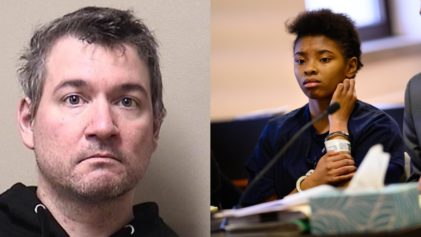Tennessee Gov. Bill Haslam (R) on Monday said he’ll have a decision on clemency for sex trafficking victim Cyntoia Brown before he leaves office in six weeks.
Brown, 30, was convicted of first-degree murder and sentenced to life behind bars in 2004 for killing a 43-year-old man who solicited her for sex when she was just 16 years old. At trial, Brown testified she shot and killed Johnny Mitchell Allen in self defense, believing he was reaching for a gun after he took her to his house for sex.
That’s when she drew her own gun and pulled the trigger.

Cyntoia Brown must spend 51 years behind bars before she’s eligible for parole, a Tennessee Supreme Court ruled last week. (AP Photo)
Last week, a Tennessee Supreme Court ruled that Brown, who was forced into prostitution by an abusive boyfriend, must serve 51 years in prison before she’s considered for release. A state parole board was deadlocked on whether to grant her clemency at a hearing earlier this year, but Haslam said the matter is still under consideration.
“We’re reviewing a lot of cases,” the governor said in Nashville at a live-streamed public forum on higher education sponsored by The Tennessean newspaper. “And while Cyntoia’s case has gotten a lot of publicity, I don’t think you want us to treat hers any differently than a whole lot of cases that I think people want us to review.”
Haslam’s remarks came in response to a question posed by Justin Lang, a higher education professional and activist with Black Lives Matter Nashville, during the audience question portion of Monday’s event. Drawing on the topic of higher ed, Lang pointed out that Brown is graduate of Lipscomb University who earned her associate’s degree while incarcerated.
“As a victim of sex trafficking and assault, this is an unjust sentence in the first place,” Lang argued. “She has not been treated as a victim of trafficking and not given the justice she deserves.”
“The Supreme Court’s decision that Cyntoia must serve 51 years before she can be considered for parole is a human rights issue,” he continued. “And so I ask you, what really, functionally, is the difference between life without parole — which is no longer constitutional as the United States Supreme Court declared for minors, for any crime — and ‘you might get parole after 51 years,’ for a victim of sex trafficking?”
Lang pressed Haslam on the issue further, despite one moderator’s attempt to interrupt him and take another person’s question instead.
“So I ask why has Cyntoia Brown been incarcerated for 14 years for enduring harm?” Lang said. “And so I say, Governor Haslam, you have the power and ability to grant clemency to Cyntoia Brown, and so I ask when will you grant her clemency? I ask what will be your legacy as you leave office, and how will you answer to this human rights violation that the state of Tennessee is committing by keeping her incarcerated?”
The governor thanked Lang for his question and replied that his office is still in the process of reviewing Brown’s case. Haslam reiterated that his office is carefully examining the case, and added that the decision on clemency would be made over the next few weeks. One woman was less-than-satisfied, however, and reportedly shouted in response, “That’s not good enough!”
“What do we want? Clemency! When do we want it? Now!” the crowd reportedly began chanting, along with “No justice, no peace.”
Brown’s case made headlines earlier this year, thanks in part to a PBS documentary on her life entitled “Me Facing Life: Cyntoia’s Story” back in 2011. A-list celebrities, including Kim Kardashian, Rihanna and Snoop Dogg, rallied on Brown’s behalf and last week’s state supreme court ruling have sparked renewed calls for justice.
A petition posted to MoveOn.org calling on Haslam to grant her clemency has nearly 600,000 signatures.
Brown has since appealed her sentence which is now pending before the 6th U.S. Circuit Court of Appeals.


